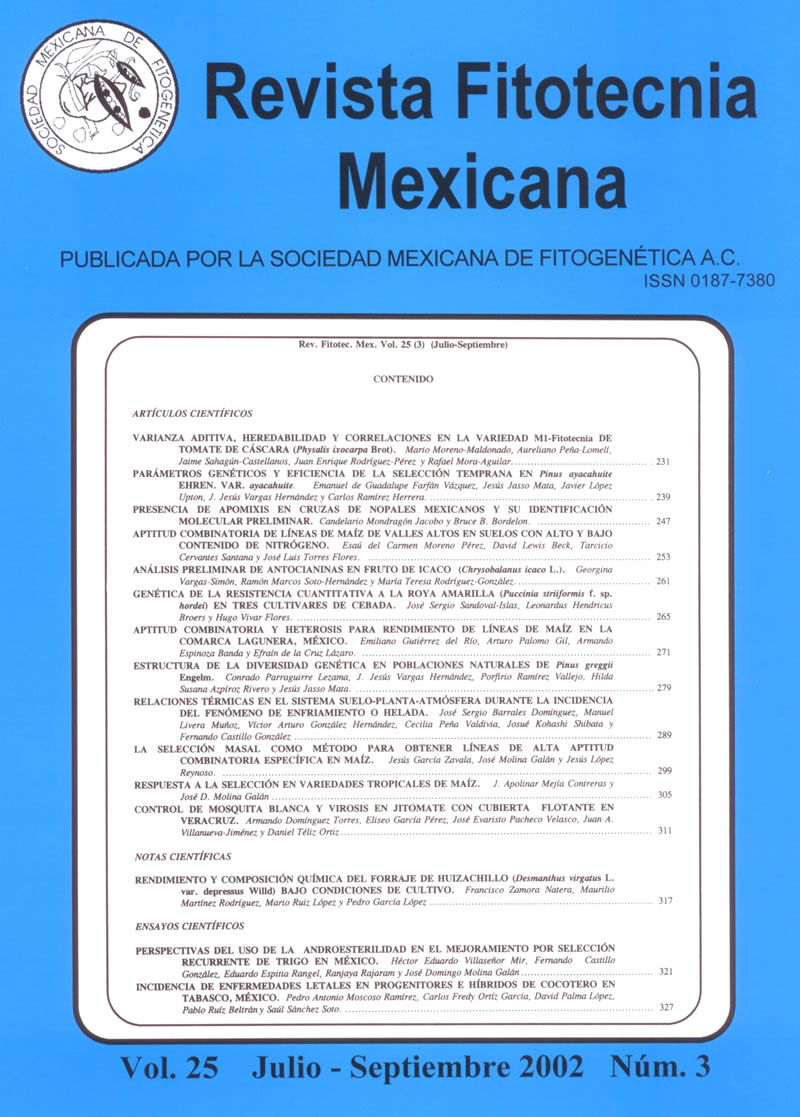MALE STERILE FACILITATED RECURRENT SELECTION PERSPECTIVES ON WHEAT BREEDING IN MÉXICO
Main Article Content
Abstract
Genetic male sterility is a powerful tool for population improvement that enables the use of recurrent selection schemes in selfpollinated species with the efficiency and advantages of the crosspollinated species. However, this methodology has not been used extensively in wheat (Triticum aestivum L.) improvement in Mexico. The main objective of the present paper is to show results of the use of male sterility in the population improvement in this country and its perspectives. The results showed that using male sterlity for population improvement, the genetic gains for grain yield were 4.7 % after three recurrent selection cycles with individual plants, and 6.8 % after two recurrent selection cycles with F4 families. Furthermore, this methodology increases relative efficiency with which polygenic traits in a population can be recombined and improved. Besides, the technique includes the feasibility to maintain a high response to selection, since recombination maintains the genetic variability in the population. Perspectives for the wheat improvement in México by male sterility are focused on population improvement of quantitative characters using recurrent selection schemes, formation of elite male sterile germplasm to facilitate genetic recombination, and fast and economical recombination of exotic germplasm.

